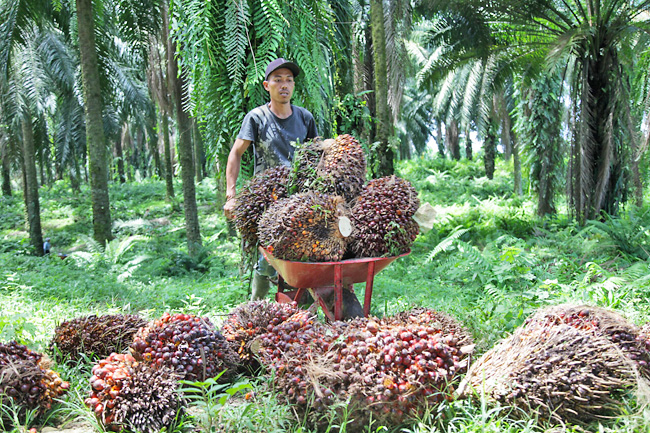JAKARTA (AFP) – Poor oversight and confusing regulations are allowing one of Indonesia’s top palm oil producers to operate concessions in protected forest areas, a new report alleged.
Friends of the Earth United States, Indonesia and Netherlands blame a “complex, poorly enforced and frequently changing legal regime” for a rise in deforestation linked to palm oil, as well as for growing clashes with local populations.
They single out Astra Agro Lestari (AAL), one of Indonesia’s top palm oil producers, alleging the firm is operating in protected forest areas and apparently without required government permits.
AAL denies the allegations, which the environmental groups said were based on analysis of independently obtained geospatial data and satellite imagery.
After slowing for the past decade, deforestation in Indonesia accelerated again in 2023, with more than 30,000 hectares of forest stripped for industrial palm oil plantations across the archipelago, according to researchers.
Indonesia is the world’s largest palm oil producer, generating more than 60 per cent of the global supply, with the European Union (EU) among its main export markets.

The EU banned imports of goods including palm oil linked to deforestation last year, and environmental groups have repeatedly subjected the industry to scrutiny.
The report said 17,664 hectares of AAL’s concessions overlap with Indonesia’s “forest estate” – areas where plantations and clearing are restricted.
Only “conversion production forests” may be cultivated, but the report alleges AAL operates concessions in 1,100 hectares that should be off-limits, including protected forest and natural reserves.
Operating within conversion production forests is allowed only with appropriate permits.
The report claimed at least three AAL subsidiaries do not have such permits and that other concessions may also be operating without them.
AAL denies the allegations.
“AAL and its subsidiaries operate in accordance with the laws of Indonesia and hold all the necessary permits to conduct their business and operations,” the firm told AFP in a statement.
“None of AAL’s subsidiaries is involved in any illegal land acquisition nor performs any human rights abuses,” it said.
Part of the firm’s defence centres around when the land in its concessions was designated as “forest estate”.





